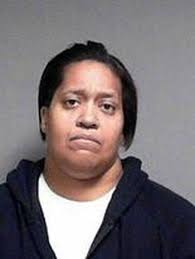A PROJECT OF THE UNIVERSITY OF CALIFORNIA IRVINE NEWKIRK CENTER FOR SCIENCE & SOCIETY,
UNIVERSITY OF MICHIGAN LAW SCHOOL & MICHIGAN STATE UNIVERSITY COLLEGE OF LAW
Ohio 2016
Ohio 2016
Three officers with the East Cleveland Police Department committed a wide range of misconduct that led to the wrongful convictions of at least 43 people in this city in northeast Ohio.
 At least forty-three people, mostly residents of East Cleveland, Ohio, were wrongfully convicted after three members of the East Cleveland Police Department’s Street Crimes Unit falsified search warrant applications, filed inaccurate police reports, and asked witnesses to give false statements in court between 2011 and June 2014. In addition, while executing invalid search warrants, Officers Torris Moore, Antonio Jones, and Eric Malone stole cash and property from several defendants, including Kenneth Blackshaw and Hosea Lock.
At least forty-three people, mostly residents of East Cleveland, Ohio, were wrongfully convicted after three members of the East Cleveland Police Department’s Street Crimes Unit falsified search warrant applications, filed inaccurate police reports, and asked witnesses to give false statements in court between 2011 and June 2014. In addition, while executing invalid search warrants, Officers Torris Moore, Antonio Jones, and Eric Malone stole cash and property from several defendants, including Kenneth Blackshaw and Hosea Lock.
East Cleveland is a suburb of Cleveland with concentrated poverty. All the officers and the defendants were African-American, and many of the defendants had extensive criminal records for drug offenses. They may have been targeted by the officers for that reason.
- Featured Case: Kenneth Blackshaw
-
East Cleveland police officers raided his grandmother’s home without a warrant, seized $100,000 and kept $30,000. “I always took it on the chin when I got arrested for something I know I did. But when a cop lies to get you in prison, that’s a different story,” said Kenneth Blackshaw, who was arrested in a 2013 traffic stop and spent two years behind bars.
He told NBC News in an interview, “A person like myself doesn’t stand a fighting chance for his freedom when he stands accused of something he didn’t do.”
Blackshaw was first stopped during a traffic stop on May 15, 2013. A month later, on June 20, Moore, Jones and Malone raided Blackshaw’s grandmother’s house without a warrant. After getting inside, they came to a room with a padlock and forced their way in, discovering $100,000 in cash. Malone seized the money, but kept $30,000 that he later split with Jones and Moore. Later, after a question arose about what had happened at the residence, Malone adjusted his report to say that one of Blackshaw’s relatives had opened the room and that the amount of seized cash was only $74,670. Blackshaw pled guilty to a trafficking offense and was sentenced to five years in prison. His conviction was vacated on February 24, 2016.
- Featured Case: Hosea Lock
-
East Cleveland police officers lied when applying for a warrant to search his home. On August 22, 2013, Moore applied for a search warrant for the residence of Hosea Lock. She said falsely that a confidential informant purchased cocaine from Lock, who ran a small construction company. The court approved the warrant, and Lock was arrested that day and charged with trafficking and other offenses. Malone lied about the informant’s existence four days later when an assistant prosecutor asked for details on the informant. Lock, who had struggled with addiction issues and had previous arrests, pled guilty in March 2014. He was given probation after filing a sentencing memorandum asking for leniency and taking responsibility for his actions. Cuyahoga County prosecutors filed a motion to vacate his sentence on Jan. 8, 2019.
All the East Cleveland defendants, including Jeffrey Brown, pled guilty. Many had prior criminal records. Although attorneys for several of the defendants filed initial motions to suppress the state’s evidence, in the end they and their clients realized that these criminal records made it unlikely that judges or juries would believe them over police officers.
- Featured Case: Jeffrey Brown
-
On November 5, 2013, Malone and another officer pulled over Jeffrey Brown just outside the store he ran in a small apartment building that his girlfriend owned.
Brown had several previous convictions for drug trafficking. The officers produced a search warrant that said a confidential informant observed a drug transaction at the store. The officers brought Brown inside, searched him, and then searched the store and apartments. The officers took a key from Brown that opened a house in the nearby town of South Euclid. They had a search warrant for that property as well, and Malone and Moore searched the house. The officers reported that they found 158 grams of marijuana in 83 bags at the store. Brown faced four counts of trafficking and related offenses.
In a motion, he claimed the search warrants were unconstitutionally vague, but the court never ruled on the motion. Brown pled guilty on April 28, 2014 and received five years in prison. After his conviction, surveillance videos were found that showed the officers seized money and goods from the cash register and the apartments during the execution of the search warrant, removing their haul in black bags. Brown claimed in a civil lawsuit that they stole nearly $80,000 in cash and jewelry from him during their searches of the apartment building and the house in South Euclid.
Brown’s conviction was vacated on December 29, 2016, in part because the video footage showed that no marijuana was found at the store. During the hearing, Cuyahoga County Prosecutor Timothy McGinty credited the vacation to the video provided by Brown’s attorney, Terry Gilbert.
“Mr. Gilbert supplied the evidence that showed his actual innocence," McGinty said. "They have a video recording of the store on 131st where he worked and the police claim that they retrieved 83 bags of marijuana at this dealer, at the store of the defendant, and the film showed no such thing. There was not 83 bags. There is nothing but money taken by these thieving police officers.”
The Federal Bureau of Investigation initiated a probe into the conduct of the three officers on January 28, 2013. Public records do not make clear what triggered the investigation, although they apparently received cooperation from a drug dealer named Mark Makupson. East Cleveland police officers arrested at least eight of the defendants after the FBI investigation began but before the FBI informed Officer Malone of the probe and showed him pictures of possible victims. At the time, Officer Malone was facing a charge in state court for unauthorized use of property. He thought that the FBI’s interest stemmed from that case, which was ultimately dismissed.
On March 13, 2015, a week before the state dismissed the charge, the FBI handed Malone a so-called “target letter,” naming him in an ongoing federal grand jury probe. Jones received a similar letter on April 22, 2015. The FBI summoned Moore for questioning two days after Jones received his target letter, but did not issue a target letter in her name.
Previously, Moore faced allegations of misconduct from the county in May 2005. She was acquitted at trial after facing aggravated charges of robbery, theft, and tampering with evidence. Prosecutors said that she and another officer had shaken down a group of teenagers by planting crack cocaine in their vehicle and demanding $600 from the teens to avoid arrest.

On October 7, 2015, Moore was indicted on five counts, including theft and conspiracy. The indictment against her alleged that she was untruthful in her responses to the FBI’s questions. Jones and Malone were both charged the following day with two conspiracy counts apiece.
The FBI also received assistance in its investigation from a man charged with drug dealing who paid Malone $3,000 to avoid arrest when he was out on bond. The extortion was recorded and figured prominently in Malone’s indictment.
Moore, the acknowledged ringleader, pled guilty in U.S. District Court for the Northern District of Ohio on April 5, 2016, to all five counts. She was sentenced to nine years in prison. Malone pled guilty on April 19, 2016 and was sentenced to just under six years in prison. Jones pled guilty the same day and was sentenced to 46 months in prison.
At Moore’s sentencing hearing, she said that at the time of the "misconduct, she was depressed, drinking too much, and dealing with a major medical issue. It was an explanation, not an excuse.
"In 2011, I became a contradiction of my entire career, my life — becoming who I swore to protect society from,” she said.
Prior to the officers’ sentencing, only three of the people wrongfully convicted had been cleared. But by the end of 2016, the Cuyahoga County Prosecutor’s Office, working with the public defender’s office, said it had identified more than 40 men and women who would have their convictions vacated by judicial order in Cuyahoga County Common Pleas Court. The prosecutor’s office has not provided a precise list.
Only one of the former defendants is known to have received compensation for his wrongful conviction. In July 2019, East Cleveland agreed to pay Walter Derrico $40,000 in compensation. According to his complaint, Moore, Jones and Malone approached him in an unmarked car on October 2, 2012, as he stood outside a house talking to friends. They slammed him to the ground and asked him where the dope was. They had no warrant but searched the house, then took $850 from Derrico but only reported $340. Derrico was charged with possession and trafficking. Derrico had previous convictions for trafficking and rather than risk a trial, he pled guilty on February 4, 2013 and was sentenced to four years in prison. His conviction was vacated on February 1, 2017.
The attorney who represented Derrico in his lawsuit against the officers and East Cleveland said that one reason the settlement was so low was that East Cleveland officials used their city’s dire fiscal condition as a defense.
Many of the other defendants are barred from receiving compensation for their wrongful convictions through the Ohio Court of Claims. State law denies compensation in cases where applicants pled guilty.
- Ken Otterbourg
- Known members of this group
-
Here are the names of the 32 known defendants who had their convictions vacated and charges dismissed due to the misconduct by the East Cleveland police officers:
Earnest Alexander, Kenneth Blackshaw, Jeffrey Brown, Raymell Calloway, Leo Collins, Walter Derrico, Khalid Dervic, Richard Hodges, Jay Johnson, Aaron Jones, Ralph Jones, Hosea Lock, Andrew McDonald, Dante McMillian, Theotis Miller, Robert Mongo, Demetrius Moore
William Moore, Eric Pierson, Ashley Roberts, LaMark Robinson, Shakira Sanders, Donavon Smith, Shalonda Steele, DeVontae Sullivan, Dionte Thompson, John Wallace, Marvin Washington, Tawana White, Brandon Williams, Anthony Woodall, Lavar Younger.
- State:
- Number of Defendants: 43
- Number of Defendants in Individual Registry: 0
- Crimes:
- Non-Violent Felonies Drug possession/sale Weapon offenses
- Earliest conviction:
- Most Recent Conviction:
- First Exoneration: 2016
- Most Recent Exoneration: 2019
- Total Known Compensation: $40,000
